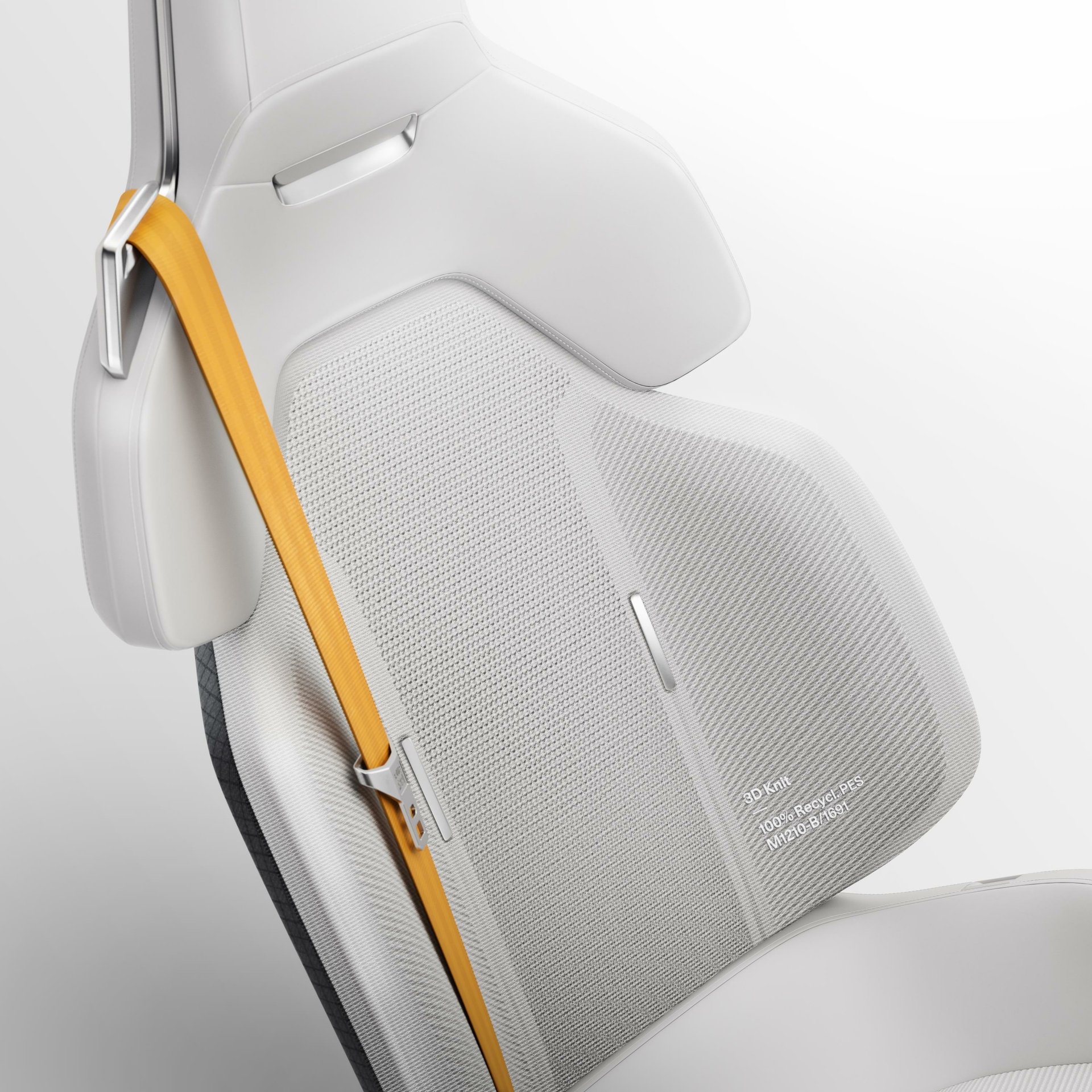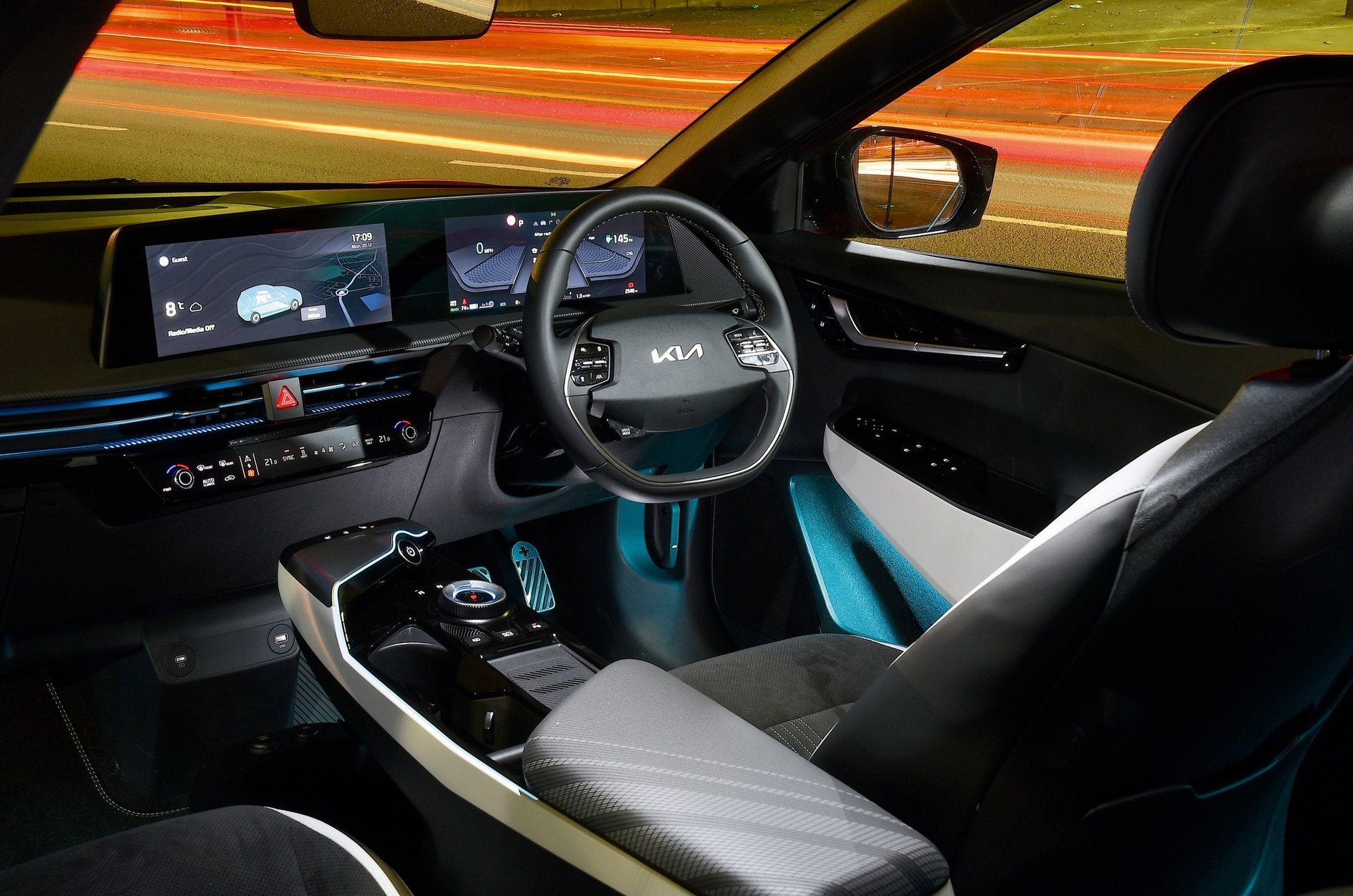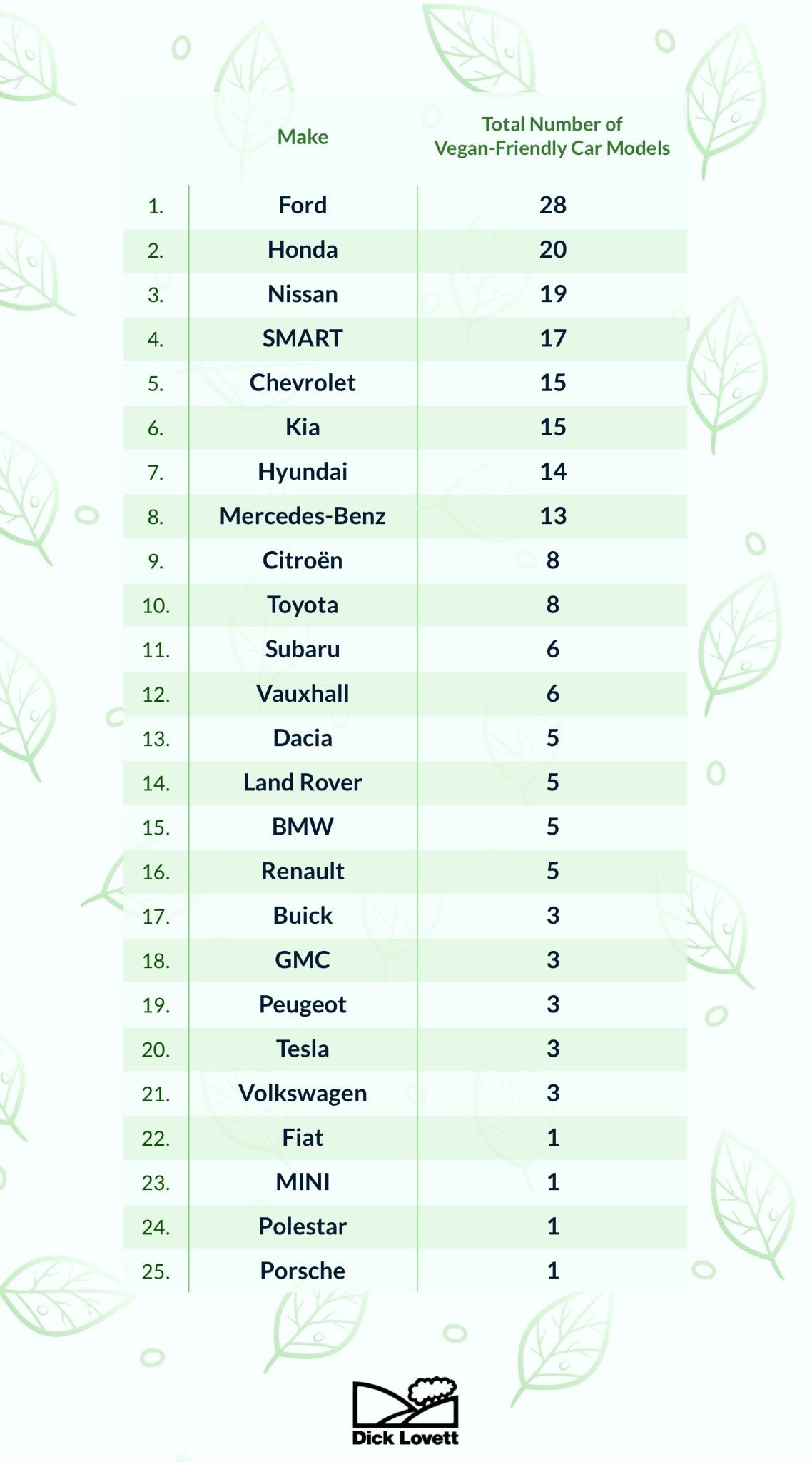Looking for Vegan-Friendly Cars in Veganuary?

We’re well into Veganuary already, but as you pull into the drive-thru for a plant-based burger, what about the car you’re driving? Is that vegan-friendly too?
The Vegan Society defines veganism as “a philosophy and way of living which seeks to exclude – as far as is possible and practicable – all forms of exploitation of, and cruelty to, animals for food, clothing or any other purpose; and by extension, promotes the development and use of animal-free alternatives for the benefit of animals, humans and the environment.”
A 2020 study by Finder.com indicated that there are over seven million vegans in the UK, which is 40% up from the previous year.
The Vegan Society’s own report on the ‘The Future of Cars’ revealed that 70% of those surveyed were interested in buying cars that were entirely animal-free, 18% stating environmental reasons and 14% were driven by ethical decisions.
Fifty-five percent said they would prefer not to see real leather used in car upholstery, while 77% said they wanted to see more use of plant-based leather (usually referred to as faux leather or pleather). Unsurprisingly the global synthetic leather market is on track to reach $67.2 billion by 2030.
While 66.5% of women would want vegan trim in the car, by contrast 58.8% of men had no issue with having genuine leather upholstery. Vegan-inspired choices are also strongest among younger consumers with 78.2% of Gen Z (17-25 year-olds) preferring vegan trim. Of Millennials (26-41 year-olds) 59.3% agreed, though that figure dropped to 45.3% for Gen X (42-57 year-olds) and just 35.8% for the older Baby Boomer generation.
Is there such a thing as a Vegan Car?
Quite simply, no. While manufacturers are keen to point out Vegan aspects of their cars, the rubber and plastic used in cars is vulcanised and toughened using animal fat, usually mutton fat known as tallow. Most cars will have a steel frame which may have been lubricated with animal fat and even paintwork may contain animal-derived pigment. Perhaps most extraordinarily of all, in-car displays might use liquid crystals produced from cholesterol taken from animals!
While it’s difficult to replace the use of animal-derived products and materials in the aforementioned, the interior trim of a car is a different matter. Currently leather is often used to trim upholstery in higher spec and luxury cars. Steering wheels and gear knobs aren’t exempt from scrutiny either, because more and more car makers have replaced plastic versions with leather-covered versions, even in some entry-level cars.
Vegan-friendly car interiors do exist, however. No animal-derived materials, such as genuine leather or wool would be applied to seats, panelling, steering wheel, or gear stick.
Instead, manufacturers use alternatives such as synthetic leather. Mercedes uses Artico vegan leather, BMW employs Sensatec. Many Italian sports and luxury cars use Alcantara, which is man-made suede and hence vegan, as is Dinamica. Meanwhile Porsche uses Race-Tex microfibre in place of suede.
Polestar recently announced revolutionary powerRibsTM and ampliTexTM technologies that turn natural fibres into lightweight and safety-conscious interior panels for future production models. The composite utilises flax, which differs from many bio-materials as it is both ideal for use in crop rotation programmes and does not directly compete with food crops.
Plus a 3D-knit material, well-known in the fashion and active footwear industries, can be implemented as seating surfaces. A single thread is used to produce a three-dimensional individual component in its entirety and the base material is 100% recycled yarn derived from PET bottles. Waste is minimal since the material is formed exactly to size and shape.
Additionally, cork and fishing nets are being recycled and incorporated within car interiors. Waste material from cork manufacturing and even whole bottle stoppers can be integrated into PVC interior componentry. Recycled Nylon 6, derived from discarded fishing nets, can be turned into woven carpets.
Why should you consider a Vegan-friendly Car?
The global leather industry, worth about $400bn a year, consumes the hides of over a billion animals. It takes an average of three cows to upholster the interior of a car, however top luxury cars, such limousines from Rolls-Royce and Bentley can use as many as 18 cow hides. Leather preparation requires 130 different chemicals including cyanide, and as such the leather industry has a huge carbon footprint.
Wool isn’t much more ethical either. According to PETA (People for the Ethical Treatment of Animals) Sheep are bred to produce far more wool than is natural. PETA says that animals are beaten, mutilated and sometimes killed during shearing. Raising sheep contributes to climate change, soil erosion, and water pollution. Sheep and goats are responsible for 474 million tonnes of carbon dioxide, which is equivalent to the emissions of 103 million cars per year. Meanwhile vegan or synthetic fabrics have a much smaller environmental impact.
What Cars are Vegan-friendly?
A study by dealer group, Dick Lovett, put Ford at the top of the list of car manufacturers offering vegan-friendly interiors. It was claimed to offer 28 models including the Mustang Mach-E electric car which came as standard with an all-vegan interior.
Honda placed second with 20 trims, closely followed by Nissan with 19. Kia and Hyundai were high up on the list too just above Mercedes offering 13. Meanwhile the Range Rover Velar was named “the optimal vegan-friendly car for off-roading” because it offered artificial suede for the steering wheel and seats, as well as faux leather for the dashboard.
PETA updated its own survey this year, adding new standouts, Mercedes Vito, Kia EV6, Renault Megane E-Tech Electric, Volvo C40 Recharge, and Citroën C4. Other manufactures also offering the ‘vegan option’ include Opel, Peugeot, Renault, Smart, Toyota, and Vauxhall. All Volvos now have leather-free upholstery.
The electric vehicles should also be given credit for going all-in on the environmental angle, with Tesla and Polestar offering vegan interiors on 75% and 50% of their fledgling brands, respectively. Dacia also deserves a mention for going vegan on a budget. A full list of makes and models can be found at PETA.org.uk






